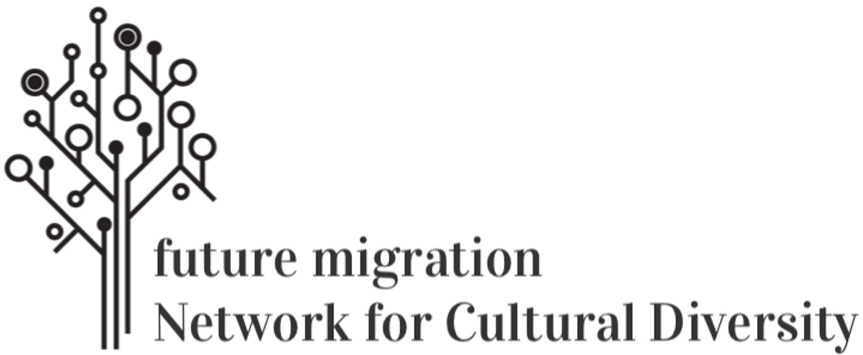After a decade of research on time, the anthropologist Barbara Adam suggests that future is performed as fact, fiction, fortune and fate (Adam 2007). These connotations might be able to approach the everyday usage of future and hence are to be understood best as featuring ‘future’ as a category of practice. Critical categories of practice are, according to Rogers Brubaker (2012), used in daily language, being coded and coding political, religious, and socio-cultural discourses.[1] Yet, the discursive structures of such categories cannot be unravelled and deconstructed without transgressing the realm of practice and entering into a meta level being called “categories of analysis” by Brubaker. Thus framed, the question how future is conceived and used in daily is to be complemented by asking how this everyday usage of “future” can best be analysed and grasped.
It is in this inquiry that future transcends its practical domains and ceases to be fact, fortune, and fate. This is to say future is not only about “what will happen”. Well, it might happen in time just as much as in a certain space, but it embarks on a different path than fate and fortune (which are way more about power and privilege than happening by chance) with their self-evident claims. Ultimately, future is very much about agencies and its negotiations with what might and what will happen. Thus, future opens up (as) a space for being made and unmade in an ongoing process of negotiation of conflicting, competing and complementary interests, contingencies, possibilities and options. Throughout global histories, some futures have buttressed each other, some have deflated each other, and others have prevented each other’s existence; the one advances the other, and the other hinders it. There are futures that did never happen, or will never happen, because other futures – as a by-product or intentionally – thwarted them. Future is about what will happen, what might happen, what has happened, what might have happened as much as about what can happen and what could have happened. As such, future does not exist in the simplicity of singular. Rather, future performs reflexively and in relation, intersecting fact and fiction just as much as the past and the present, embracing all the missed and silenced futures in the process. Thus future as a category of analysis opens up a new perspective on and understanding of Future as FutureS – a plural that acknowledges that all futures matter alike .
The reflexivity, relationality and multiplicity of FutureS are informed by power and its structures and discourses along the lines of gender, sexuality, race, religion, health, age and nation. The social positions thus coded decide to a high extent about the very impact a person or collective may have in shaping individual and collective futures. Thus, every struggle about power is about future and every struggle about future is striving for access to power.
Ultimately, though, the struggle over future is not determined by power constellations alone. Just as much as power is un/made by agencies, futures are un/made by agencies, too. Contextualized by power and powerlessness, privileges and deprivation, ethics and unscrupulousness, responsibility and the lack thereof, agencies desire and fear, fight and sustain, experience and forget, built and destroy both futures. In fact, agency is power’s most virulent protagonist and antagonist likewise.
The agencies of FutureS have many guises and modes of performance – and narration is one of the most powerful modes of expressing or implementing agency. We have been what we have narrated and what we have narrated shapes FutureS.
As far as contemporary debates about migration in Germany are concerned, it is all about past, present and future FutureS and their pasts and thus the question, which (German and their global) FutureS have been prevented or favoured, silenced or narrated, and shared evenly or discriminatingly. German colonialism and its genocides have their share in the death of millions of People of Colour in Africa, the Americas and Asia and the respective destruction of societal and economic structures as well as their futures. Simultaneously, the colonial appropriations of foreign resources, goods and labour have accelerated the industrial revolution and built a future of what is often narrated today as the “developed West” were superior to the “underdeveloped Global South” in need of help. The Shoah, in turn, murdered millions of Jewish people and their futures. Many of the conflicts and wars in the MENA-Region are a legacy of this, too. One of the many lessons learnt from National Socialism was the legacy to host refugees, to offer survival to those who have to flee war, genocide and persecution as well as to welcome people by sharing privileges, economic security and aspirations for more evenly distributed FutureS. This, however, asks for visions of Germany and Europe that narrate migration as intrinsic Europe, puts emphasis on the merits (rather than threats of) of migration and re-narrates Germany and Europe as being diverse and therefore beautiful, promising and prosperous rather than dangerous. This includes the awareness that to offer asylum is not a gift but a way of taking responsibility for the still ongoing long-lasting effects of colonialism and National Socialism as well as the global capitalism that keeps building Western privileges at the cost of millions of people of colour all across the globe. This new narration about future Germany, Europe and beyond is the FutureS needed urgently in our entangled worlds.
Author: Susan Arndt
Works Cited:
Adam, Barbara & Chris Groves. Future Matters: Action, Knowledge, Ethics. Leiden: Brill, 2007.
Arndt, Susan, Deborah Nyangulu & Peggy Piesche. FutureS. Merits of a Critical Category of Analysis. Bielefeld: transcript, i.V.
Brubaker, Rogers. „Categories of Analysis and categories of practice: a note on the study of Muslims in European countries of immigration”, in: Ethnic and Racial Studies 2012: 1-8.
Ette, Ottmar. TransArea. Berlin: de Gruyter 2012
Gibson, William. „ The Science in Science Fiction", in : Talk of the Nation, NPR (30 November 1999).

